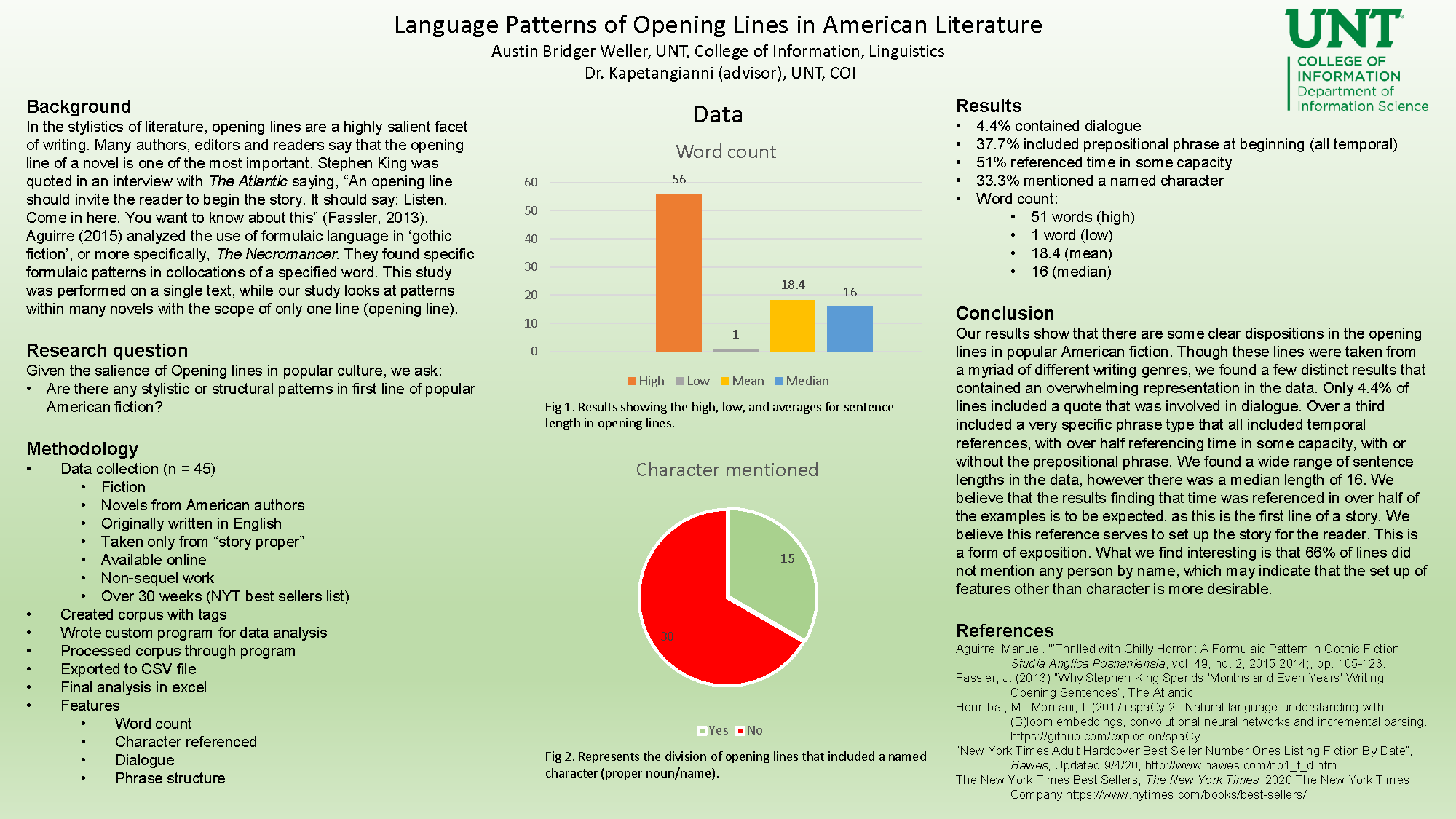First Name:
AustinLast Name:
WellerMentor:
Dr. Konstantia KapetangianniAbstract:
In the stylistics of literature, opening lines are a highly salient facet of writing. Many authors, editors and readers say that the opening line of a novel is one of the most important. Stephen King was quoted in an interview with The Atlantic saying, “An opening line should invite the reader to begin the story. It should say: Listen. Come in here. You want to know about this” (Fassler, 2013). Because of the perceived immense responsibility of this initial line, it stands to reason that there may be predictable linguistics patterns that authors fall to. The work done by Aguirre (2015) shows how linguistic analysis can be applied to a singular novel in order to reveal formulaic patterns. By analyzing the syntax around a core word (horror), the Aguirre study found repeating structures involving the specified word. One of these structures is: “experiencer + passive verb of physical impact + force/agent [‘with’ + (adj.) +emotion term” (Aguirre 112). This study asks if there are any clear patterns in the opening lines of western literature. If there are patterns, do they change depending on the era they were written? In our study, the first line of 45 novels, written in American English originally, are analyzed. The novels are selected by their availability digitally and their popularity, deemed by the number of weeks on the New York Times Bestseller’s list Using a mix of a simple natural language processing (NLP) script and manual analysis, the opening lines are recorded and broken down by part of speech (POS), word count, sentence complexity and transitivity. These results are then analyzed by date published. Though the data set is still small, there is enough to set a preliminary president. There is an apparent median word count of 16, as well as some repeated prepositional phrase structures. This study aims to fill a gap in research on highly prioritized single sentences in literature. ideally this study will not only answer the research at hand but also provide a basis for further study on the subject.
Poster:





